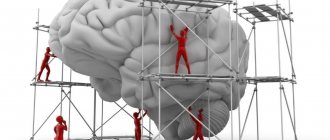Gallup International researchers have been studying human well-being since the mid-20th century. Recently, in collaboration with leading economists and psychologists, they began searching for common elements of well-being.
Gallup has conducted research in more than 150 countries around the world. From Afghanistan to Zimbabwe, participants were asked hundreds of questions about health, well-being, relationships, work and community membership.
These results were then compared with how people behaved on a daily basis and assessed their lives in general.
The original study asked people what their ideal future would be. Scientists have found that people often prioritize income and health when evaluating their lives.
Perhaps because these components of personal well-being are easy to measure and observe their dynamics over time. We can control our height, weight, blood pressure and family income.
But we don't have an accurate way to measure success in our careers or personal relationships.
To get a more accurate picture of individual well-being, scientists have developed question-based assessments across cultures over the past 50 years.
Five parameters that are universal across different cultures have been discovered that distinguish a happy life from an unhappy one. Here are the components of the formula for human well-being:
— professional well-being: how you spend your workdays and whether you like what you do
- social well-being: the presence of love, stable connections and close relationships with other people
— financial well-being: security of the financial side of life
- physical well-being: good health and sufficient energy to cope with daily activities
— social involvement: a sense of belonging and participation in the life of the community
About 66% of survey participants responded that they were satisfied with at least one of these points, but only 7% believed that they were satisfied with all five criteria.
If we experience difficulties in at least one of these areas, we do not feel satisfied. When our level of well-being improves in at least one of the dimensions, we will feel happier for a long time.
However, real pleasure from life can be obtained only when everything is good in each of the five components.
All business content in a convenient format. Interviews, cases, life hacks of the corporation. world - in our telegram channel. Join us!
Although these elements are independent of faith, culture and nationality, people choose different paths to achieve well-being. For many, spirituality is the driving force.
Their faith is the most important aspect of life and guides their daily actions. Others are inspired by a global mission, such as protecting the environment. Despite the difference in motivation, we strive for the same goals.
There are many ways to achieve professional, social, financial, physical and community well-being. These areas are within our control so that we have the opportunity to improve our well-being (eg, exercise more, see friends more, manage money wisely, etc.).
But this means that the biggest threat to our well-being is ourselves.
Often we don’t even notice that with our short-term decisions we are destroying what could make us happier in the long run.
Where does prosperity come from?
Well-being comes from thoughts, actions and experiences, most of which we control. For example, when we think positively, we have more emotional well-being. When we strive for meaningful relationships, we strive for greater social well-being. And when we lose our jobs—or simply hate them—our workplace well-being tends to decline.
Since this is such a broad experience, let's break down the different types of success.
Emotional well-being
The basic qualities of human life include emotional well-being, which was inherent in each of us in childhood. The main role in this is played by the child’s environment: parents, grandparents, kindergarten. In childhood, the foundations of emotional well-being are laid, formed on the child’s perception of relationships in the family and the formation of a reaction to these relationships.
Parents need to try to understand their child, how he perceives his family, himself and his parents. An emotionally prosperous child is friendly, smiling, spontaneous, talkative, does not offend others and does not fight, is not rude, does not steal, does not scream.
Children grow up emotionally well when they develop normally. To achieve this, the agreed upon requirements in the family and kindergarten are met, there is no violation of the daily routine, when the child learns the world in adequate ways, such as curiosity and exploration, but is not overloaded intellectually, and does not receive knowledge that is not appropriate for his age. And, of course, the family in which the child grew up was prosperous.
Five Basic Types of Well-Being
- Emotional well-being is the ability to practice stress management techniques, be resilient, and generate emotions that lead to good feelings.
- Physical well-being is the ability to improve the functioning of your body through healthy eating and good habits.
- Social well-being is the ability to communicate and develop meaningful relationships with others that help overcome loneliness.
- Workplace well-being is the ability to pursue your interests, values, and goals to professionally find meaning, happiness, and financial enrichment.
- Community well-being is the ability to actively participate in cultural life and protect the environment.
Well-being formula
Sergei Kovalev, professor of psychology, psychotherapist, developed a method for assessing human well-being [1]. A person is prosperous when he lives his life - rolls his own stone.
Sergey Kovalev
He proposed a simple formula:
Well-being = Efficiency + Happiness
Human well-being is the sum of two components: “efficiency” and “happiness”.
You cannot talk about life satisfaction and well-being if you are deficient in at least one of the two components. You can burn at work, be a leader in sports and a god in sex. And if, despite all its effectiveness, life is devoid of love and is not focused on a global goal, then tactical successes on all fronts do not promise us either joy, satisfaction, or a full sense of life. Therefore, we are prosperous when we are efficient and happy.
Let's try to swap any of the components and get the correct equality:
- Efficiency = Well-being + Happiness. Well-being and happiness naturally fuel our effectiveness.
- Happiness = Efficiency + Well-being. We experience a feeling of happiness when we act effectively and all areas of our lives are prosperous.
If we evaluate our effectiveness on the scale of perfection, and our happiness on the scale of luck, then the formula will take the form:
Well-being = Perfection + Luck
Luck is the ability to achieve a goal with minimal effort in the shortest possible time, according to Kovalev.
The level of perfection determines the quality of a person’s life scenario - his stone. And the level of luck is determined by the adequacy of ideas about oneself, about people, about God.
Our life scenario consists of our ideas about ourselves and the world, and they determine whether we will be rolled or we will be rolled.
Coordinated operation of all systems
To achieve overall success in life, you must ensure that all of the listed types are functioning to a certain extent.
Print and bright jewelry: spring 2021 trends that suit women over 40
Chocolate shades and more: several fashionable coloring techniques for brunettes
Taurus are very devoted to their owner: the dog’s horoscope will tell you about the dog’s character
Think of it this way. Imagine that you are a machine. Your engine is running great, and perhaps your transmission is running very well, but your brakes have failed. And if they don't work, it doesn't matter how well the engine runs because it can lead to huge problems.
The same is true for your well-being. If everything in your life is going well, but you feel lonely or eat unhealthy food, it will affect other areas of your life and you probably won't feel the way you want.
Since every little thing is important to your overall sense of happiness, let's talk about how to build each type of well-being.
Varieties
From a scientific point of view, generally accepted goods and their possession are what well-being means. Its components are often other significant criteria.
Emotional
Emotional well-being means the absolute absence of anxiety and excitement, the predominance of calm and serenity. It is emotional well-being that accompanies any other type, because it is an integral component of satisfaction in any business.
Soulful
Mental well-being, which occurs to a greater extent among church officials who are looking for peace of mind, is also close to the laity when family relationships do not cause trouble. This feeling is especially acute among mothers who are satisfied with the life arrangements of their children.
Material
The material well-being of people in Russia in most cases comes down to the ability to buy necessary high-quality food products, foreign medicines and household appliances that make life easier, as well as the ability to get an education. People who have all these benefits consider themselves financially prosperous.
Financial
Wealth is the goal of many modern people. Financial satisfaction is achieved when income meets needs and does not limit the natural daily needs of the individual. A comparative analysis of different segments of the population reveals the absence of uniform criteria defining this type of well-being.
Financial satisfaction
Social
Psychologists say that such well-being for a person increases self-esteem in general. Even if you have enough money, it is impossible to feel confident when others do not accept you as your equal. Social success significantly improves the quality of life, stimulates career and personal growth, and can even have a positive effect on physical health.
Physical
This is one of the most unnoticed aspects of everyday life. While a person is healthy and can fully use his body without experiencing difficulties, he does not notice his physical well-being. But as soon as you lose this opportunity, you immediately feel your own inferiority.
What well-being is, everyone decides for themselves, based on the variety of needs and life circumstances. A happy country is one where the state takes care of all aspects of the population’s activities. Agreement between legislators and the people can have an impact on domestic political well-being. At the same time, each person will always have their own approach to achieving absolute satisfaction in life.
Physical well-being
To maintain our physical well-being, we need to know what healthy eating and exercise looks like so we can implement effective strategies in our daily lives. It is recommended to consult a specialist for advice.
When we build physical well-being, we not only feel better and are able to resist the development of many diseases, but at the same time our emotional background also grows noticeably.
Son of Alexander Domogarov: “My mess is ideal for me, I know where everything is”
To look attractive and elegant: choosing an outfit for a first date
How to make a decorative fence for a plot with your own hands: instructions with photos
Well-being: monetary wealth + love + gratitude
You should not assume that having a money supply can lead to complete well-being. If a person is rich, but there is no harmony in life, then it does not acquire positive and colorful features. A person must both achieve the goal and enjoy what he receives beautifully and skillfully. Having received wealth, no one should depend on it.
A self-sufficient life is an existence free from material values. Yes, internal harmony will be in order if you manage your wealth correctly, with benefit not only for yourself, but also for those around you. There is an interesting scheme created by ancient civilizations: well-being - gratitude - well-being. Having received welfare, a person gives benefits to the world, and then receives benefits. This golden triangle will never be whole if greed, debauchery, envy, laziness, cruelty, etc. interfere between the components.
Who will disagree with this opinion and point to rich people who live dissolute lives, kill people, profit from the misfortune of others. Believe me, such people have neither happiness, nor peace, much less harmony. And for their actions they will definitely be punished, if not in this life, then in the next.
Let's study a number of recommendations for maintaining purity and creating complete harmony with the inner and outer world.
Smile, gentlemen, smile...
These words of the legendary Munchausen cause delight and the same smile in most people. Therefore, do not wait for any reasons for fun, but smile a kind smile at everything - a beautiful flower, your own reflection in the mirror, a kitten, the rising sun or pouring rain. Even the Bible indicates that the Lord placed despondency in one of the first places among mortal sins. There is a scientific theory about the benefits of a smile - we activate that part of the facial muscles that send signals to the brain to produce endorphin - the hormone of joy and happiness.
Social well-being
To develop this type of success in life, we need to build our social skills such as gratitude, kindness and communication. They make it easier for us to interact positively with others, helping us feel less lonely, angry, or disconnected from life. When we develop social well-being, we feel more important and connected to others.
It is important to know that creating this type of success is one of the best ways to create emotional well-being. When we build strong social connections, we tend to feel more confident, calmer, experience more positive emotions, and are better able to cope with challenges.
The difference between happiness and well-being
Well-being is the definition of assessing quality of life. It can persist for a long time if no external factors disturb the existing harmony. When a stable state of affairs has been maintained for a long time, not a single loss has been experienced, a person feels satisfaction, the source of which is well-being.
Personal growth - what is it?
Happiness is an explosive elation, an internal euphoria felt from achieving a specific goal (or set of goals). Unlike well-being, complete happiness is short-lived. The human psyche cannot experience euphoria for a long time. This can be compared to the smell that is felt in a room by a passer-by entering from the street. At first it is heard clearly, because the brain compares it with fresh street air and clearly determines the difference. But after a very short amount of time, the new smell becomes familiar and unnoticeable. Everyone quickly gets used to the feeling of happiness, as well as to a new smell. What previously led to a state of euphoria soon becomes just a pleasant feeling of pleasure. For a new surge of happiness, another stimulus is required.
Additional Information. Well-being is a state that allows emotions to calm down and enjoy the situation, while happiness excites the mind and takes you out of balance, often pushing you to do amazing things.
Wellbeing in the workplace
To develop wellbeing in the workplace, we need to build skills that help us understand what really matters to us.
This may include developing competencies that help us move forward more effectively, but it also includes things like defining values and maintaining work-life balance. These skills allow you to enjoy your work more, helping you stay focused, motivated, and successful in your profession. And when we succeed at work, therefore every day becomes more and more fulfilling.
At 72, she is a model and inspires women to be happy in their third age.
Invisibly present in all his roles: the muse of Alexander Gorbatov
You can make a large playhouse for children: take note of the method
Since we spend so much time at work, this type of well-being has a big impact on our overall well-being.
We act against our own interests
We know that physical activity is good for our health, but we still skip exercise. One missed class won't cause a heart attack, so we cut ourselves some slack.
We know that a lot of sweets and fried foods are bad for us, but we reach out for another candy or chips. After all, one bite of French fries won't cause diabetes or obesity.
While we give in to short-term desires, it is difficult for us to change long-term behavior.
We know it's important to spend time with friends and family, but when we have too much work to do, we hardly take the time to ask a friend how they are doing.
Spending money is more pleasant than saving. Putting money into a retirement account can pay off many times over later. But right now it’s much more tempting to buy yourself something nice.
When there are so many ways to enjoy the here and now, it can be difficult to make the right decisions for the long term. We are designed to choose what will give us the fastest return.
However, psychologists believe that the ability to give up immediate pleasure for something more valuable in the future is an important indicator of human maturity.
In reality, our short-term self wins and eats cake, even though our long-term self wants to live a long, healthy life.
When more than 23,000 people answered questions about their shopping habits, only 10% said they regularly buy candy.
But when the same group of people were later asked whether they would eat candy if there was a bowl of sweets in front of them, more than 70% admitted that they would do so.
Public Welfare
To develop social well-being, we need to build skills that make us feel connected to other things in the world. We need to know how to support the environment and develop a culture of compassion, justice and kindness. These skills help us feel like we are part of a thriving society where everyone truly supports each other and the world at large. When we develop social well-being, we feel like we are part of something larger than ourselves.
Although each of us is only a tiny part of society, we all need to create social well-being. If each of us did one kind thing for someone else, we would live in a very kind world.
For example, to avoid overloading yourself with plastic toxins, recycle your plastic. And this will be your plus in the treasury of good deeds.
Components of well-being
Moral qualities - what are they?
Complete well-being consists of several components, including all social and personal aspects:
- Affective. Characterized by the absence of depression and anxiety, as well as general satisfaction with life.
- Meta-need. Characterized by personal abilities that provide the basic needs of life.
- Worldview. Characterized by the ability to strive to achieve goals and set them for oneself.
- Intrareflective. Conditioned by accepting oneself along with shortcomings and imperfections. Adequate assessment of one's own self in society.
- Interreflective. Explained by harmonious interaction with nature, society, and the whole world.
Attention! It is possible to achieve complete and absolute well-being only by achieving prosperity both in the internal qualities of the individual and in the microcosm around him. Self-development, self-knowledge and the desire to live in abundance, without infringing on the interests of other generations, are the first steps towards the pinnacle of well-being.
Self-knowledge and harmony with the world
Who benefits most from achieving well-being?
Not everyone is equally focused on achieving prosperity. For example, many studies show that the more motivated you are to develop well-being skills, the greater the impact, the greater the effectiveness of working with your own fears.
It is an undeniable fact that a growth mindset and overall positive attitude can help develop other well-being skills. Therefore, we must first acquire them ourselves, which will make it much easier for us to improve the well-being of others.
What is well-being like?
If we do a survey, we will not get a clear answer to the question posed. Everyone considers the meaning of the word “well-being” in their own way, adding a definition to this word. Here is a sample list of these definitions:
- material;
- spiritual;
- social;
- relative;
- moral;
- moral;
- worldly;
- emotional;
- financial.
The list can be continued for quite a long time. And yet, having a certain collective image, we can definitely say that the word “well-being” means satisfaction in any of the above definitions. What kind of well-being can we talk about if you have a precarious financial situation, if everyday issues have not been resolved, if you do not have enough finances to implement your plans? In this case, there is no pleasure in life and a sense of security.
There is nothing magical about building well-being
Keep in mind that building any new skill set takes time and effort, and that includes wellness skills. It's important to be realistic with yourself about what you can reasonably accomplish in a given amount of time. Having unrealistic expectations can cause you to give up before you achieve your wellness goals. That's why it's important to create a plan and stick to it, taking small actions every day that add up to big improvements over time.
The truth is that we all struggle with different parts of well-being, and new struggles are bound to arise even if you are thriving. But the longer we work on strengthening our success skills, the easier it is to be flexible, take the actions needed to recover, and keep moving forward even in the face of adversity.
Yes, improving your well-being is a lifelong endeavor, but it's worth it. I’m curious, how do you rate your level of success? What skills require special attention?
Found a violation? Report content
Material well-being
Material well-being is the basis, the foundation of human existence. People choose different paths for their development. It is possible to become a rich person. Only for this you need not to say that you want to become rich, to have material well-being, but to want it.
The synonyms prosperity, success, wealth fit the word “well-being” perfectly when we are talking specifically about its material component. So, if you do your favorite activity, for example, weave all kinds of products from wicker or paper tubes, knit or sew, and by selling your product, you receive a material reward. There is a purposeful action towards a specific goal: material well-being. Taking up a hobby is one of the sources of income. Material well-being is not constant. You need to engage in self-improvement, find sources of income, look for new methods of achieving your goal, and then your cornucopia will be inexhaustible.
Psychological health of people
This type is an integral part, an important element of overall health. Thus, this state is the absence of mental abnormalities and forms of physical disability (defects), but not only.
Mental health is defined as a person who is thriving when they are able to cope with the normal stresses of life, work effectively to meet their needs, and contribute to their community. It plays an important role for us as intelligent beings capable of thinking, expressing emotions, communicating with other people, earning a living and receiving pleasure. That is why strength and human security are so important here.
Psychology experts describe people's mental health using the following criteria:
- balance and the harmonious organization of the psyche associated with this state with its adaptive capabilities;
- adequate subjective perception of things, phenomena and circumstances;
- critical assessment of oneself and environmental circumstances;
- the ability to adequately change in terms of behavior in proportion to changes in the situation and environment around oneself and the organizational process;
- a sense of attachment and responsibility to members of the inner circle;
- skills to draw up and implement your life plans.
What is a prosperous individual in psychological terms?
Psychologists often highlight the following characteristics of psychological well-being:
- interest in what is happening in the surrounding world;
- the ability to establish close positive relationships with the environment;
- dedication;
- the ability to direct one's actions for the common good;
- high level of spirituality;
- the ability to exist in harmony between the soul and the mind;
- integrity;
- focus on personal growth.
However, everyone understands that psychological well-being cannot be used as a universal concept. This means the way out of the situation is through research and study of influencing factors.
Techniques
The study uses a number of psychological tests aimed at diagnosing personality. There is a certain specificity - the measurement and testing direction. They can achieve the goals of assessing and classifying objects in quantitative and qualitative terms. The most important requirements for psychodiagnostic methods are the standardization of instruments with strict regulation of procedural management. The most commonly used methods are:
- the Riff questionnaire of 84 questions (in the most popular version) - a development to study the expression of the key elements of the concept, which implies subjective feelings of integrity and meaningfulness of a particular person’s existence. The methodology uses hedonistic (through receiving physical and spiritual pleasure, pleasure) and eudaimonic (happiness through self-realization with finding a creative unity of the corresponding request of the surrounding society and the development of one’s personality) approaches.
- Lewis Goldberg's "Big Five" test - a model that allows you to give a structured description of a person from different aspects, including factor analysis of emotional instability, extraversion, openness to learning, ability to get along in a community, conscientiousness;
- EPI questionnaire – developed by Eysenck in two versions (A and B), differing in questions, with the possibility of repeated comparative diagnostics. The methodology includes two scales (extraversion-introversion with neuroticism) and a scale for assessing responses regarding sincerity. Used in the Russian version by A. G. Shmelev;
- Leary's multidimensional test (1954) - designed to study a person's subjective ideas about his ideal self and relationships in small groups. The goal is to identify the dominant type of relationship to members of the environment through self-esteem and mutual evaluation in the group, taking into account dominance-subordination, as well as friendliness-hostility;
- Cattell's personality test - a 187-item questionnaire for diagnosing personalities of an objective-experimental nature, making it possible to determine character traits, inclinations and personal interests. This is one of the well-known multifactorial methods for searching for a description of a person in terms of stability, sustainability of properties that can determine his inner essence and character of behavior;
- others.
A set of factors contributing to the formation of a person’s psychological well-being
In cases with mental well-being and happiness, we have not yet come to a unified definition of the concepts. American psychologist K. Rieff proposed her definition in the form of a factor set (scale). There were several variations. The 84-item version of the questionnaire has become more widespread in the West. It was also adapted in a number of other countries, including Russia. From the point of view of K. Rieff, the multidimensional model includes several basic elements, namely:
- positive relationships with important people for a person who is in well-being - involves determining the level of trust in the company of potential friends, openness and sociability, showing empathy in relationships with other people, the ability to seek compromises and give in. We are also talking about personal choice of one’s place in society, the development of social connections;
- personal growth, including independent development, consists of clarifying the need to realize one’s own potential and the desire for constant development, moving towards clearly defined goals, improving one’s skills, and acquiring new knowledge. This implies the level of satisfaction with life in the process of growth, the ability to grow, taking into account the personal attitude of a particular person;
- purposefulness and understanding of one’s purpose - involves understanding the meaning of life, deciding on a clear goal (and not going with the flow), using existing experience for the benefit of the future, drawing the right conclusions from mistakes made in the past;
- self-acceptance - consists of determining a person’s attitude towards himself (level of self-esteem) and assessing his personal qualities (positive and negative) and his own life as a whole, taking into account opportunities and potential. It takes into account how a person endures unpleasant moments;
- understanding your life - involves identifying faith in beliefs, principles of life with meaning;
- environmental management - designed to identify characteristics of character and temperament that characterize a person as a powerful person with a desire to effectively manage other people and be responsible for this. Moreover, some people are able to create conditions for effective career growth and confidently remove various obstacles from the path. But for others, on the contrary, it is difficult to work, both alone and in a team;
- manifestation of independence - consists in determining the qualities of a person associated with the ability to solve problems of varying complexity and act autonomously along the intended course, regardless of what social pressure the environment produces. This affects the level of self-esteem and responsibility for one’s actions. There is a strong dependence on the opinions of others and newfangled trends.
Mental well-being is associated with many aspects of our existence, including rapid social change, stressful work conditions, gender bias, social distancing, poor lifestyle, physical illness, and also associated with violations of human rights and freedoms.
There are also a number of characteristics of a particular person that make him vulnerable to mental problems. In addition, there are biological risks as genetic factors.
A little about emotions
We call emotions states associated with feelings about the satisfaction or dissatisfaction of our basic needs. The main emotions are anger, surprise, fear, joy and sadness - these emotions are the same for all people, regardless of their nationality, traditions and culture.
Anger energizes our muscles and allows us to feel powerful or defensive. In a state of anger, the body produces certain hormones that prepare us for action.
Surprise is a misunderstanding of a situation caused by a lack of information. When surprised, our eyebrows rise and our eyes open wider to see more and understand what is happening.
Fear momentarily causes numbness, during which there is an intense outflow of blood from the head to the feet (“the soul goes to the heels”), and the person first freezes in place and then tries to run away.
Joy makes you want to jump, dance and move to release the energy caused by hormonal changes.
Sadness, sadness or grief cause sharp inhibition in the body and a decrease in energy. Sadness is necessary for a kind of self-immersion: a person must turn away from the world and be alone with himself in order to better think about the current situation, and if the grief is caused by loss, then he must find consolation for himself. We need such an energy decrease so that we can gain wisdom in peace and be able to plan something, and when the energy returns to us, we can begin to implement this new plan.
Our emotions are simultaneously controlled by the call of the heart and cold reason: the emotional component is provided by the subcortex of the brain, and the emotions are regulated by the cortex. To achieve harmony, it is necessary to find balance between these structures and make them work synchronously, but not everyone succeeds.
Article on the topic
Laughter for no reason. Does fun really prolong life?
True well-being
The Kovalev Star method is one of the possibilities to find a way out of the impasse. This is not a self-assembled tablecloth, not a path leading to religious dogmas, and not a sacred esoteric practice with elements of magic. There is work to be done here. You already have all the necessary tools to achieve your goal.
As Kovalev states [2]: “Our ideas about ourselves, others and the world are self-justifying prophecies and self-fulfilling predictions [2].” If you sincerely believe that everything is a mess, everyone is an asshole, and you are a loser, quickly change your ideas. What you see every day is what is in your life. Start paying attention to the new, and look at the old in a new way.
If there is order in the world somewhere, then there is chaos, but not everywhere. If your close friend is not an asshole, then there are probably a couple more “not assholes” out there. Look for the words “all”, “everything”, “never” and “nothing” in your thoughts and speeches - replace them with “some”, “someone”, “often”, “something”. Change the filter on your glasses through which you view yourself and others.
You need to pay attention to adjusting your priorities all the time. Realize that true well-being is, first of all, calmness, a feeling of joy and inspiration, creation, meaningfulness of work.
Good luck in choosing your lucky stone.











